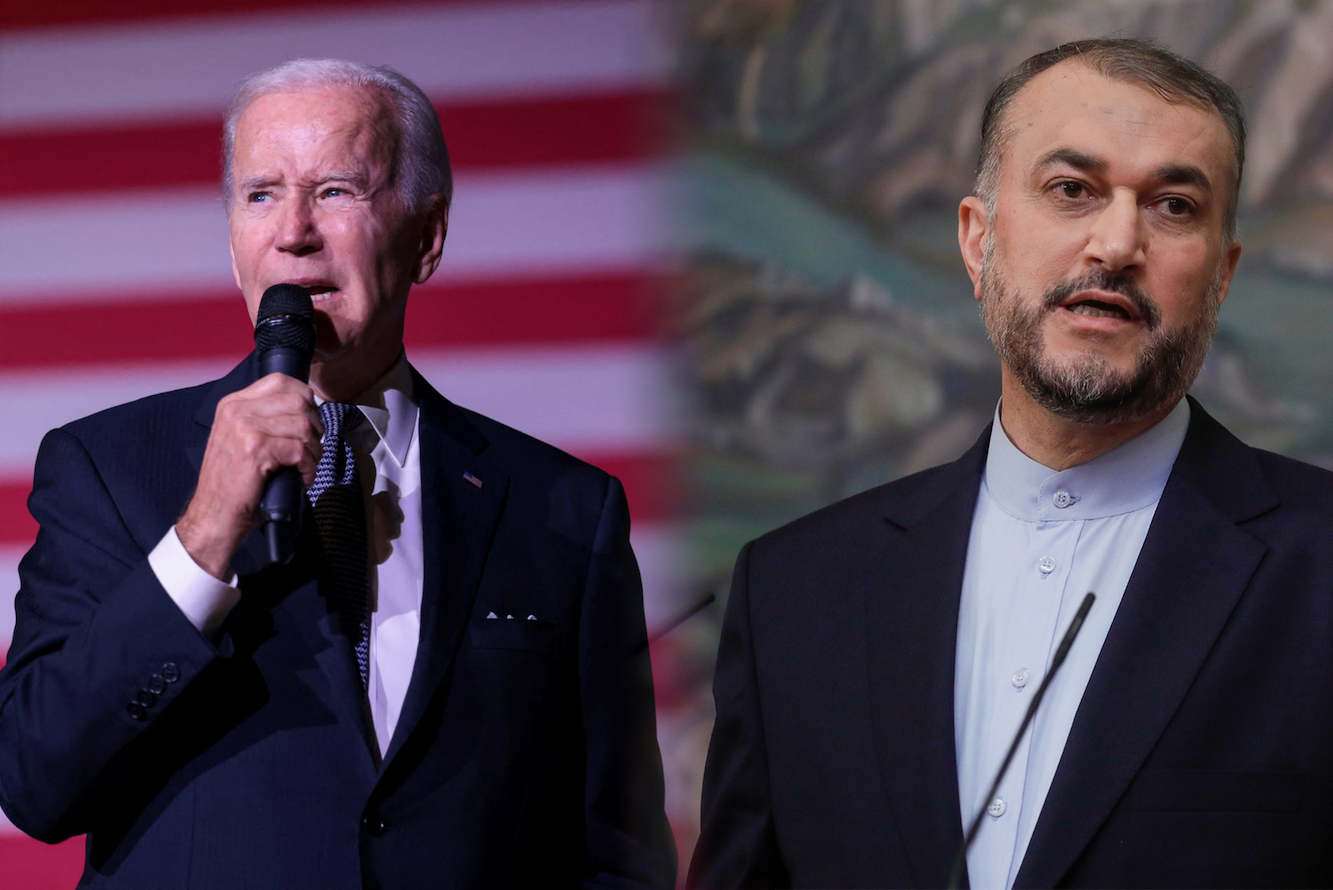Iran has indicated a desire to keep nuclear negotiations ongoing , hoping to avoid facing the critical option of actually producing a nuclear bomb , as well as preventing further escalation with the West. Iran has continued to evince an interest in resuming negotiations, despite
US President Joe Biden’s remark that the “nuclear deal is dead.”
On January 2, Iranian Foreign Ministry spokesman Nasser Kanani, confirmed that “Iran is ready to resume negotiations, but the option of reaching a final agreement is with the United States of America.” While Iranian Foreign Minister, Hussein Amir Abdullahian, said on December 28 that “the window for nuclear negotiations remains open, but it will not remain so forever.” It is notable that during his visit to the Sultanate of Oman, Abdullahian made this remark, suggesting that the visit was related to these statements, or more precisely, that the visit was aimed at conveying Iran’s openness to negotiate a potential agreement to several Western countries, particularly the US. This was in parallel with the statements of Assistant Foreign Minister Ali Bagheri Kinney, claiming that Iran was ready to enter negotiations and reach a settlement.
Iran’s willingness to resume negotiations can be explained by several motives, most notably:
Avoiding escalation: Iran has made numerous threats that it will continue to develop its nuclear program, perhaps even reaching nuclear bomb production should negotiations be stalled, halted, or the current nuclear agreement is terminated. However, Iran may not prefer to resort to that option at least at the present time. The country faces a complexity of simultaneous crises, and therefore does not want to escalate the situation and create more difficulties for itself, especially since going into nuclear bomb production may invoke the use of military force against it.
This means that the Iranian regime is now facing a critical impasse, as it has been raising domestic expectations regarding the nuclear program, and has continued to refuse to make concessions in the negotiations, making a retreat from these positions all the more difficult.
A potential regional war: Iran no longer rules out engaging in direct war in the region, particularly with the formation of a new right-wing government in Israel led by Benjamin Netanyahu, which places a priority on the Iranian nuclear threat. This was evident in the Israeli government’s alluding to the formation of an international front to counter Iran.
Iran undoubtedly understands that the continued development of its nuclear program and stalled cooperation with the International Atomic Energy Agency (IAEA) is likely to prompt Israel to continue its security operations within Iran to disrupt the nuclear program, obstruct the missile development, and target nuclear and military scientists. Although these operations have declined in recent months due to the outbreak of Iranian protests since September 16, they may again continue with the formation of the new government and Iran’s continued upgrading of its nuclear capabilities.
Avoid bringing tension with the West to the brink: Iran’s expressed wish to engage in negotiations can be seen as an attempt to prevent tensions with the West from escalating to unprecedented levels, as they are no longer confined to the nuclear issue, but now also extend to Iran’s support of Russia in its war on Ukraine, as well as human rights abuses against Iranian protestors.
Rising tensions with the West would further isolate Iran, making it more dependent on Russia China. But Iran has also faced an unpleasant surprise in the form of Chinese President Xi Jinping’s participation in the three summits held in the Saudi capital of Riyadh from 9 to 13 December 2022. Iran’s relations with many countries in the region are also unstable due to the continuation of Iranian interventions in their internal affairs.
Dissuading Western countries from designating the Revolutionary Guard as a terrorist organization: Tehran hopes to discourage Western countries from designating the Revolutionary Guard as a terrorist organization, which would undermine Iran’s current interests and agenda. Many reports have suggested that the British government may be moving towards taking that step in the next phase due to Iran’s stance in the nuclear negotiations, its military support to Russia, and the detention by Iranian authorities of 7 persons connected with the UK because of internal protests. British Prime Minister Rishi Sunak made a point of strongly criticizing Iran, demanding, on January 2, that it not exploit cases of dual nationality to gain diplomatic influence and manage its differences with Western countries.
Stalling for Time
Iran’s insistence on the need to resume nuclear negotiations and its assertion that there is still hope for a new nuclear agreement does not suggest that it has begun a change in its hardline policy. Although domestic protests have imposed stronger pressure on the regime for greater flexibility towards reaching an agreement, the regime so far does not appear willing to compromise, on either the domestic or international front. It appears that tensions between Iran and the West will occupy center stage in 2023.


